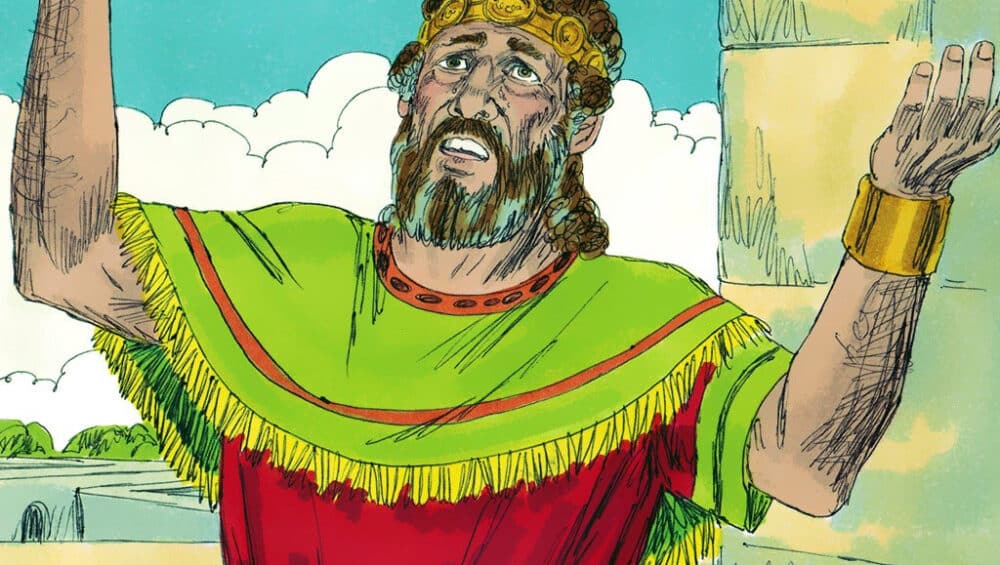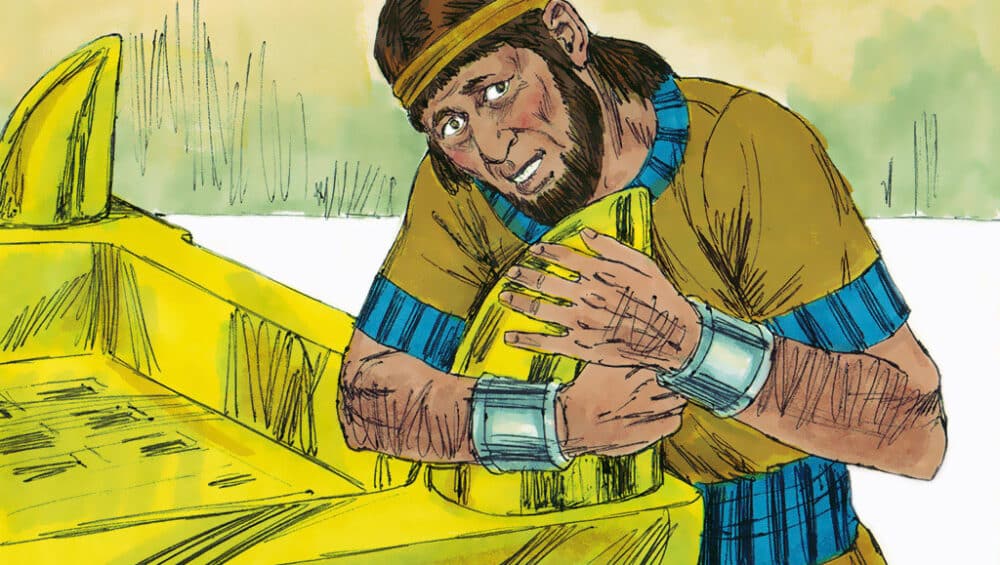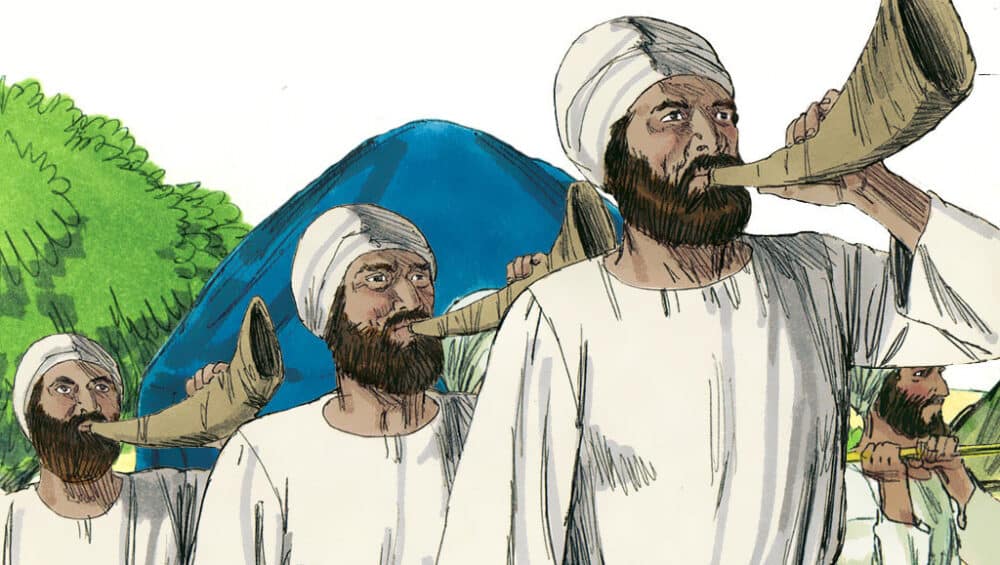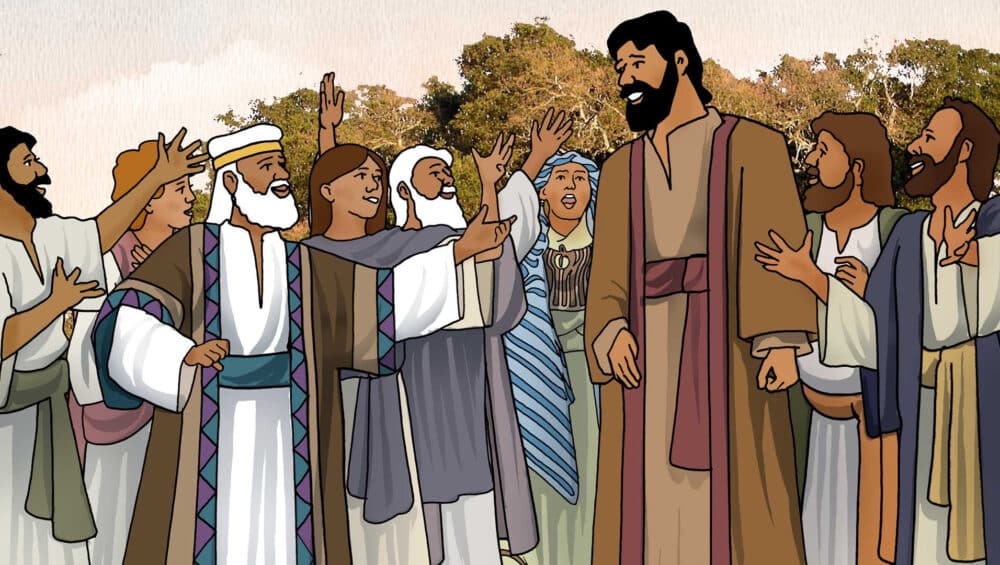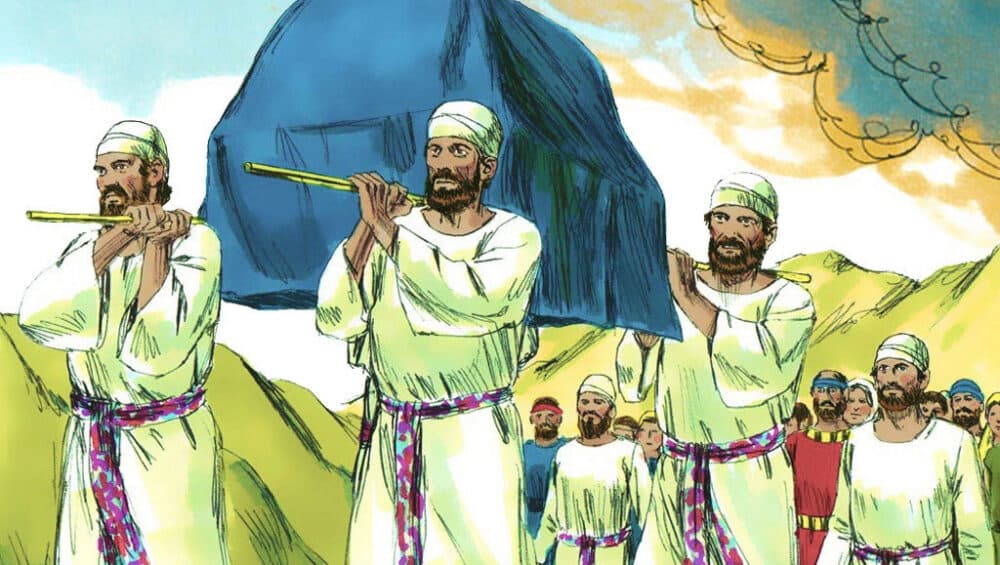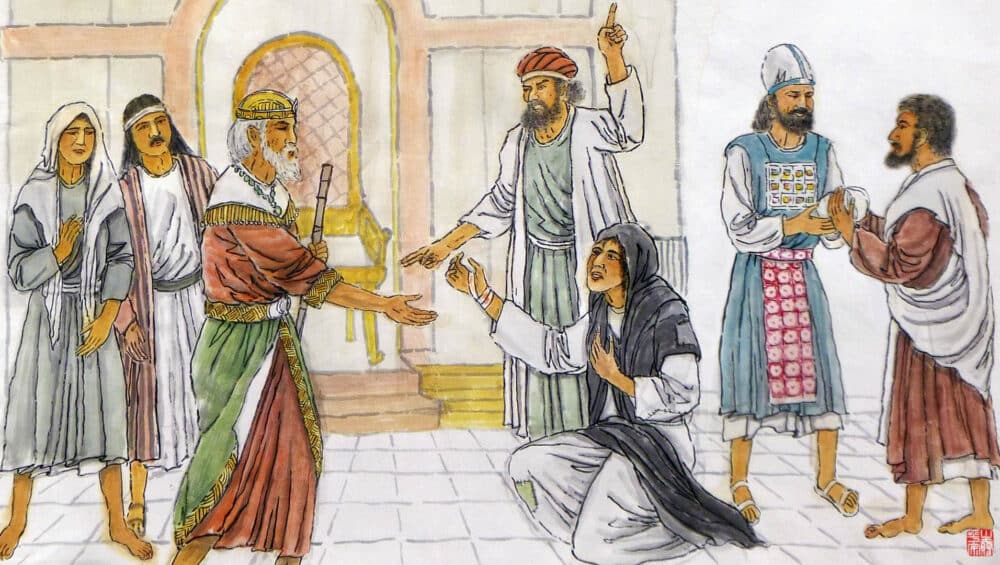Sweet Publishing / FreeBibleimages.org.
Welcome to Livin’ Light’s Bible-In-A-Year challenge of discovering God’s love for us and His purpose for our lives. Here is the format for this great adventure: The daily reading assignment is posted at 5 a.m. After each day’s reading, Leigh An Coplin, the blog host, shares observations and poses questions about difficult passages to Rob Fields, who studied Christian Education at Asbury Seminary and currently teaches Biology in the Orlando area. To start from the beginning, click on 365 Bible Readings and scroll down to Day 1. The reading schedule is taken from The One Year Chronological Bible NLT.
Today’s Reading
— Psalms 12-17
— Psalms 19-21
(979 BC) Click here for a timeline of the entire Bible.
Questions & Observations
Q. (Psalm 12): In our readings of David so far, I only remember him talking about enemies lurking and also about praising God. But here, David talks of how the people are succumbing to evil. In a recent reading, I do remember when given three choices of punishment to choose, he chose the one with the smallest duration. So, that shows his compassion to others — that others are on his mind. But, it seems that David’s biggest concern has been gaining and keeping the throne.
A. That is not the way I would read this Psalm. David here appears to express concern that the people of his generation are becoming increasingly corrupt and falling away from God. We will see how this plays out horribly when we return to Kings.
Q. (13): Is it correct to say that God may not answer some of our prayers right away as a test to see if we will continue to be faithful when God seems far away? But then, when he hears us cry out in anguish, he will honor the loyalty by answering the prayer?
A. I once heard a pastor say that there were three answers to prayer: yes, no, and wait. Ultimately, if we trust that God knows what is best for us even better than we do, we can hopefully accept that sometimes we do not know which answer God is giving us.
Q. (14): This reminds me of Noah and the Ark — everyone is evil again except one family. We don’t know at what time in David’s life that he wrote this song, right? So, we don’t know what he was going through at this time. Can you explain verse 7? Who is David referring to when he says someone will come from Mt. Zion? And, why bring Jacob into the picture?
A. We do not have dates for any of the Psalms, no. I don’t think verse 7 refers to a particular person, but rather a request for God to provide deliverance personally. While the title of “Jacob” is not commonly used, it is the same name as Israel, so that likely is the significance. It’s probably there to make a particular rhyme in the Hebrew.
Q. This is a sideline question that I just thought of when I was writing the previous question. Can we draw any correlation between Noah’s “Ark” and the “Ark” of the Covenant?
A. Sure. Both represent God’s provision for His people at different times: the Ark (boat) made a way for Noah in Genesis, and the Ark of the Covenant made continuous provision for God’s people throughout its existence.
Q. (15): This psalm mentions something many have issues with — talking about others. What defines gossip to God?
A. The usual line I take on gossip is: anytime you are discussing a less than stellar aspect of another person without their knowledge just for the purpose of sharing, you are flirting with gossip. If you are talking to someone for your benefit at the expense of someone else’s reputation, you’re in danger. And obviously it is not gossip if you are talking to the person about the issue you have with them, as Jesus directed us (Matthew 18:15-18).
Q. (16:11): It sounds like David knows something of the afterlife here.
A. I think David has great faith in God’s ability to preserve him forever. David is one of the first writers to speak of this concept clearly in the OT.
O. (17:13-15): I don’t have anything to say about this except that I love the words and thoughts that David uses to praise God here.
Q. (19:12-13): I relate to these verses. I often see things that I think are glaring faults in someone, but I wonder what faults I have in myself that I don’t see. When do we know what to change and what should be left alone, both in ourselves and in others?
A. By praying. I know ministers who use these verses and Psalm 139:23 as a part of their walk with God. They say, “God, I am open to anything that you desire to reveal in me and want me to be working on, and I desire for the Spirit to be working on my heart” or something like that. Do that for a while, and I think you will find that God is eager to reveal in us what He desires for us to change.
O. (19:14): Our pastor says this verse every Sunday before he preaches. I love it! (Note from Rob: this is one of the most well known prayers of pastors, and it has been used for centuries.)
O. (20:7): I like this underscore about boasting. I do like that we can boast about our Lord, who provides all we need, as David says here. Boasting of ourselves has no place in this world.
Q. (21:7): I like this. At times, when I am feeling troubled or challenged, I remember that as long as I trust in God, I will not falter. It sounds pretty easy. But, as we know, it’s easy to falter. We know Jesus was the only perfect man. Would you say it’s impossible to be perfect? And that one reason sin surrounds us is to check our faithfulness to God to see if we turn to him to keep us out of sin or redeem us if we have already sinned?
A. One of the goals that the Bible describes in our walk with God is called sanctification. That it, the process, day by day, that the Spirit is at work in our hearts, if we let Him, to make us more and more like Christ. There is some degree of debate as to whether it is possible to be perfect, but ultimately, perfection for the sake of perfection is not the goal. The goal is to be more like Jesus, and let God take care of the rest. As you said, if we put our faith in God, and act out of the best desires of our hearts, we will be in good shape. Now having said that, let me hasten to add that it should be the goal of all Christians, not to be perfect — tricky indeed — but rather to be MORE perfect today than yesterday. If our goal is to truly follow after God, then we can see how taking steps of obedience to what He desires will be something we desire.
Book: If you’d like to read more on being holy, Christian perfection, and sanctification, I recommend a book entitled, “Called to be Holy” by John Oswald. It’s a great look at how holiness is attained in both the Old and New Testaments. https://www.christianbook.com/called-to-be-holy-biblical-perspective/john-oswalt/9781593175450/pd/55921
Shop: Christian shirts get noticed. Check out these conversation starters: https://livinlight.org/shop/
Tomorrow’s reading
— Psalms 22-26

